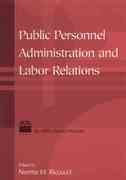Question
Suppose an individual lives for two periods and has utility 1 + 2. a) Suppose the individual has labor income of 1 in the first
Suppose an individual lives for two periods and has utility 1 + 2. a) Suppose the individual has labor income of 1 in the first period of life and zero in the second period. Second-period consumption is thus (1 + )(1 1); r, the rate of return, is potentially random (For your convenience, you can let =[]+, where is a mean-zero random error). i) Find the first-order condition for the individual's choice of 1. ii) Suppose r changes from being certain to being uncertain, without any change in E[r]. How, if at all, does 1 respond to this change? b) Suppose the individual has labor income of zero in the first period and 2 in the second. Second-period consumption is thus 2 (1 + )1. 2 is certain, again, r may be random. i) Find the first-order condition for the individual's choice of 1. ii) Suppose r changes from being certain to being uncertain, without any change in E[r]. How, if at all, does 1 respond to this change? (Optional)
Step by Step Solution
There are 3 Steps involved in it
Step: 1

Get Instant Access to Expert-Tailored Solutions
See step-by-step solutions with expert insights and AI powered tools for academic success
Step: 2

Step: 3

Ace Your Homework with AI
Get the answers you need in no time with our AI-driven, step-by-step assistance
Get Started


